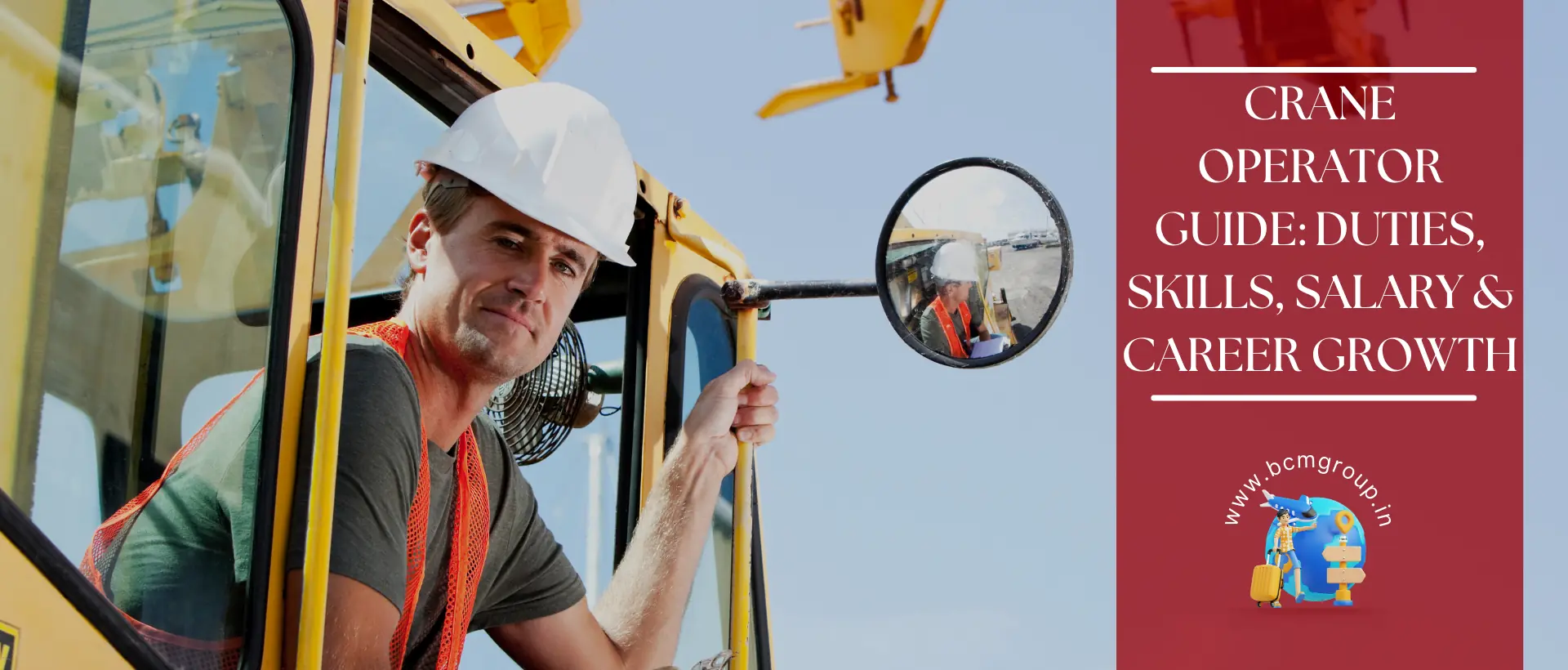
A crane operator, or crane driver, is a skilled worker. They use heavy machines to lift and move big loads. This job is important in production, shipping, and business tasks. The main job of a operator is to manage the machine well. He must follow load charts and work with their team for smooth operations. A work of operator is to follow safety rules. This helps prevent injuries at work. This blog discusses the roles, skills, salary, training, challenges, and career opportunities for crane operators.
To succeed as a crane operator, you need technical knowledge and safety awareness, just like physical ability. Here are the key skills and abilities:
This means you can read and understand load charts. It helps you calculate safe lifting capacity in different boom positions.
You should understand how hydraulic systems and counterweights work. This helps you troubleshoot quickly.
You need to know how to use hooks and slings properly to ensure safety with rigged equipment.
You must be skilled in hand signals and radio communication. This helps you coordinate with supervisors effectively.
You should be able to assess risks from workers before each lift. This includes checking ground stability and nearby workers.
You need to know how to stop operations quickly in case of load imbalance or equipment failure.
The salary of a crane operatr varies by country, experience, and industry. Here is the updated pay range in Indian rupees (₹).
🔹 Average pay by region
Becoming a cran operator is a skilled blue-collar profession, more than just sitting in a cabin and moving controls. It requires technical knowledge, hands-on training, and proper certification. Here’s a simple step-by-step process:
👉 In India, institutions like Cirt Pune and private heavy equipment academies offer crane operatr training.
The EU’s crane license is important for working in European countries.
Opportunity Certification – You can get Opito or GWO for oil leakage and offshore projects.
Using job consultancy agencies like BCM Group can help. They assist with legal visas, job placements, and connecting with employers.
Crane opertors work in many fields. They lift, move, and relocate heavy materials. Knowing which industries hire the most can help you focus your career or plan for remote jobs.
The work of operator, also known as a wreath driver, is a skilled worker. They safely operate the hoist in building, shipping, and industrial projects. This job needs constant focus on technical knowledge, accuracy, and safety. Operators deal with challenges like long shifts, bad weather, and high-pressure tasks. However, proper training, certificates, and hands-on experience can help them manage these issues.
Industries such as construction, port, oil and gas and production provide good opportunities. Together with certificates and agencies such as BCM Group, operators can secure rewarding jobs in both India and abroad.
[contact-form-7 id=”d2f63f9″ title=”Candidate Form”]
[contact-form-7 id=”3b2dcad” title=”Employer Form”]
License No. MUMBAI/PARTNERSHIP/5493853/2021
HEADQUARTERS: 409, 4th floor, Amanora Chambers, Amanora Mall, Near Magarpatta City, Hadapsar, Pune – 411208
© 2024–2025 bcmgroup. All Rights Reserved.
Privacy Policy | About Us | Contact Us | Submit Your C.V | Submit Your Requirements